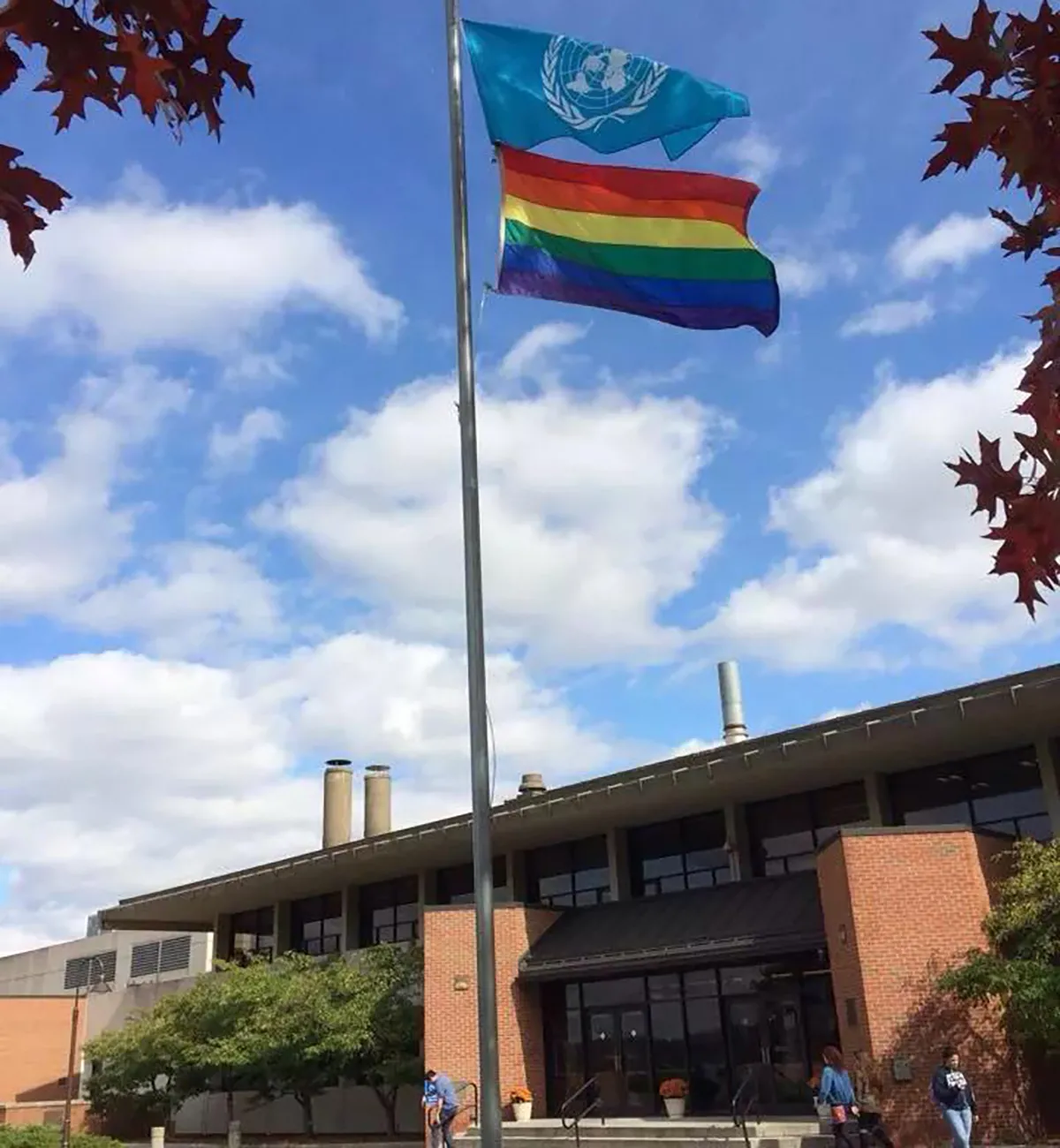The creation of this opportunity was powered by the passion and drive of current IC students, specifically a student-led team of second-year IC students Jay Barrett ’24, Gwyneth Cole ‘24, and Cecil Decker ’24. Along with support from peers, these students are largely responsible for leading the process from initial development of the RLC concept all the way through to securing final approval.
“The Idea for the Open Pages RLC developed naturally between us and other transgender and nonbinary students at the college,” said Barrett. “It began as more of a hypothetical than an official plan, but as the three of us kept talking about our previous residence hall experiences and how much this type of RLC would benefit us, the concept really began to take shape. What we wanted was an actively supportive community, where students can explore and express themselves without fear.”
With support from Luca Maurer, interim executive director for student equity and belonging and director of the Center for LGBTQ Education, Outreach and Services; the student group was connected with Ron Trunzo, associate director of Residential Life, Student Conduct and Community Standards; and Eileen Roth, assistant director for Residential Education and Assessment, who serve in advisory roles to the RLC program and the plan officially got underway.
“I’m so excited about this, not just as the Center director, but remembering myself as a young person in college who would have really benefited from this kind of an RLC but nothing like that existed,” Maurer said. “I don’t think my peers and I would have been able to even imagine something like this. This was a student-led, student-driven initiative, and that’s one of the best kinds of initiatives to refocus and center the experiences and needs of students that higher ed has traditionally ignored, overlooked or left behind.”
The key part of the process was the work advocating for the RLC’s preferred location in West Tower and approval for converting traditional double rooms into single-occupant rooms to better support the needs of prospective residents.
“During and after the request for singles, we had information sessions for prospective residents,” Barrett continued. “We had many residents show up in-person and on Zoom to express interest and ask questions. Seeing the outpouring of interest and the energy behind the concept felt like a major turning point for us as we got closer to finalizing the RLC approval process.”
With the approval process complete, focus this spring has turned to program planning for the fall.
“I’m looking forward to getting to the fun part of actually living in the community and interacting with the residents,” Cole said. “As the RA for the RLC, I am looking forward to planning events and watching the community build as we begin to get to know one another this fall. As someone who also identifies in the same identity group, I am hoping my residents will feel more comfortable using me as a resource.”
“I am most excited to see and interact with other students involved in the RLC,” Decker added. “The opportunity to see people truly inhabit the space and live as their full selves is an incredible privilege. The ability to create and be a part of this shared space and experience is a wonderful addition for any current or future transgender and nonbinary student at Ithaca College.”
Barrett concluded by sharing his thoughts on how creation of the RLC can serve as a roadmap to sparking future initiatives to continue making Ithaca College and colleges in general more inclusive.
“For me, the best part about forming the RLC is the opportunities this will provide to future transgender and nonbinary students,” Barrett said. “A large part of creating this RLC is forcing ourselves to confront the ways in which our college was not originally designed with all students needs in mind. The transgender housing accommodation process has been great in working against these inherent injustices, and the Open Pages RLC joins it in a longer battle to make IC and colleges in general more accessible and inclusive. Not only are their immediate benefits to students in the short-term, but hopefully this serves as part of a larger shift towards transgender and nonbinary inclusion beyond correct pronoun usage to more active restructuring of our traditional imbalances.”
